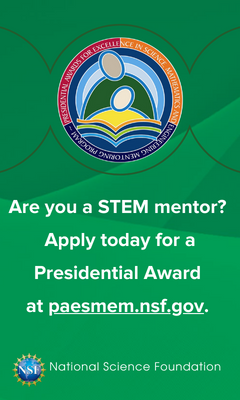Entering and sustaining a STEM career is challenging for many women, but Sunita Satyapal has defied the odds and is leaving her mark at the U.S. Department of Energy.

Satyapal has over two and a half decades of experience in her field and is making significant strides as director of the U.S. Department of Energy's (DOE) Hydrogen and Fuel Cell Technologies Office within the Office of Energy Efficiency and Renewable Energy.
She is responsible for coordinating hydrogen activities across DOE offices. She is also responsible for the strategy and execution of hydrogen and fuel cell programs, including oversight of more than $1.6 billion in research, development, demonstration, and deployment activities and staff. In addition, she coordinates more than $9.5 billion in hydrogen activities in partnership with DOE offices. In addition, her office has led the interagency working group on hydrogen for nearly two decades.
"I've been interested in hydrogen because there's just been so much interest partly because of the versatility," Satyapal said. "Most people don't know, but it's the most abundant element in the universe."
Satyapal coordinates international hydrogen activities as vice chair of the International Partnership for Hydrogen and Fuel Cells in the Economy, a partnership among over 20 countries to accelerate progress in hydrogen. In addition, he is the U.S. co-lead for hydrogen efforts within the Clean Energy Ministerial and Mission Innovation.
Satyapal believes that hydrogen is a critical tool in decarbonizing and addressing the climate crisis, a task that President Joe Biden has brought to the forefront of his agenda. Climate change isn't going anywhere, and Satyapal believes awareness is vital when combating it. She says people don't talk about the climate crisis enough because it seems so far into the future, but time goes by quickly.
"That's why I'm grateful to my whole team and colleagues here in my office," she said. "Everyone is so passionate about spreading the word."
One project that stands out for Satyapal was developing material that could absorb carbon dioxide so astronauts could go on missions longer. She has also helped on a project developing a way to dispose of chemical warfare agents, but her focus was always on the
environment. Diversity is an essential aspect of meeting climate goals, according to Satyapal.
She said having people with different perspectives and backgrounds brings a lot of value to projects such as those dealing with climate change. "We just need so many different perspectives. The globe is so interconnected, so it's critical," Satyapal said.
Satyapal has had many mentors throughout her career, but her parents were her most significant mentors. Her father came to the U.S. on a cargo ship with no money, received his Ph.D., and became a director for the United Nations. She said her mother got her Ph.D. at a time when it was tough for women to move up educationally and professionally.
"They went through so much, and they gave me and my sisters so much of an opportunity," Satyapal said. "We ended up being able to live and grow up in the U.S., so I think that gratitude and that recognition of what people have gone through before us is inspiring."
Being a DOE scientist wasn't always Satyapal's goal. Instead, she wanted to be a university professor when she began her education—a dream she hadn't given up, partly because her mother and her sister are both professors now.
In her field, Satyapal has had to overcome many obstacles that come with biases some people have when they first see her. For example, she said she has been in situations where someone refused to shake her hand.
"How the brain works is when you see another human being, your brain immediately classifies. You don't even know it," Satyapal said. "One way to overcome these challenges is to realize that that is how the human brain works, so it's not necessarily the person's fault."
She believes that biases are natural because everyone has them. She said one way to overcome these challenges is to realize that they are often ingrained in a person. She advises young people who want to start a career in STEM to focus on their foundation because that will allow them to grow and become more knowledgeable in their fields.

